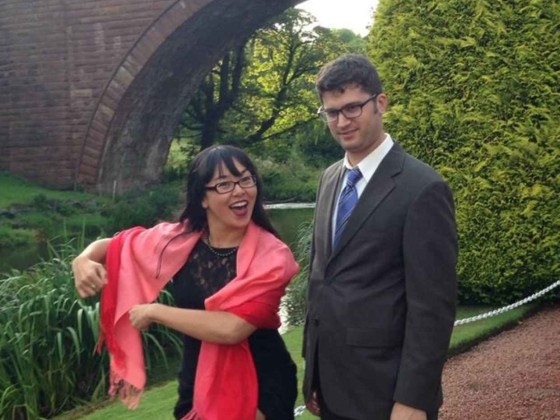THE FIRST TIME I got a whiff of judgement about my interracial marriage came from a close friend of my family.
This person was of a previous generation (or several previous generations), was living in the American south at the time, and had “what was best” for my husband and me at heart. Of course she did.
Upon learning of our engagement, she clicked her tongue and a look like she’d just been told the ice cream she was eating was made out babies, crossed her face.
